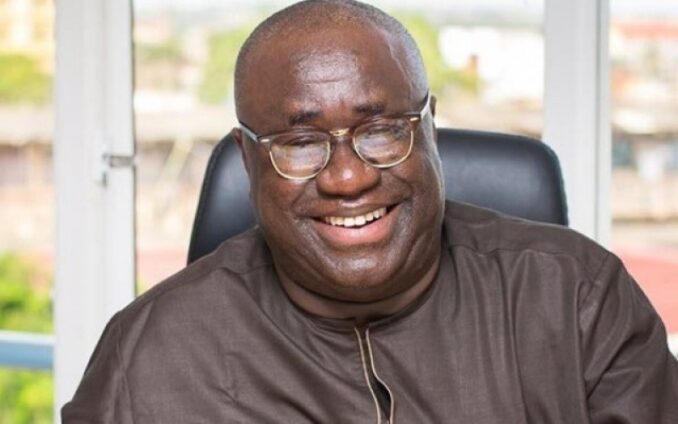A distinguished scholar in African security and international politics, Professor Emmanuel KwesiA Aning, on November 22 made a compelling call for introspection during the "Beyond Electrocracy" webinar hosted by the Center for Alternative Politics and Security West Africa.
Speaking on the theme "Beyond Ghana’s 2024 Elections: Business as Usual or a New Pathway Towards People-Centered Politics?” Prof. Kwesi Aning emphasized the urgent need for active political participation to sustain Ghana’s democracy.
“Limited popular participation, as we see in Ghana, leads to a dangerous situation that undermines resilience, institutions, and sustainability,” he said, critiquing the growing apathy and exclusivity in the nation’s political processes.
The webinar, held via Zoom, marked the launch of the Center for Alternative Politics and Security, a think tank aiming to redefine the political landscape in Ghana and West Africa. Prof. Kwesi Aning praised the initiative, noting its alignment with the historical moment. “The very name captures the essence of what this centre seeks to do, we need a new type of politics necessary for Ghana and West Africa.”
Prof. Kwesi Aning underscored the role of political participation as the cornerstone of democratic governance. “Democracies depend on the active and informed involvement of citizen participation across the spectrum of political processes,” he said, adding that participation fosters credibility, engagement, and a sense of ownership among citizens.
However, he lamented the current state of citizen involvement, where political engagement often revolves around transactional relationships. “It is the voluntarism aspect that we seem to have lost in Ghana because everything now has a price,” he stated, criticizing the dominance of elitist groups who, under the guise of democracy, prioritize personal interests over the collective good.
Prof. Kwesi Aning called for a paradigm shift, urging Ghanaians to reflect on the broader implications of their democracy. “We’ve reached a divergent point where we need to consider whether this is the democracy that will take us to the next stage of our development,” he said.
The discussion also highlighted the need for sustained political engagement beyond election cycles. “Citizens must play this role over the four-year period,” Prof. Kweisi Aning asserted, emphasizing that participation should extend beyond voting to include active involvement in decision-making processes and advocacy for inclusive governance.
He concluded his presentation with a call for action indicating that Ghana must move beyond electoral formalities to create a participatory democracy that empowers its citizens and redefines the essence of governance.
Latest Stories
-
Mpohor Queenmother breaks down complaining about infrastructural challenges
4 mins -
Personal and political interests disrupting power sector – IES
27 mins -
Kumasi to host Joy Prime’s Big Chef Tertiary S2 finals
38 mins -
KOD hints at releasing an album before he turns 50
43 mins -
2024 Election: NDC accuses NPP of printing fake ballot papers
51 mins -
A democracy that fails to solve its own problems is a questionable democracy – Dr Muhammad Suleiman
54 mins -
Our fight against corruption is more talk, less action – Mary Addah
1 hour -
CHRAJ report settles matters against Kusi Boateng – Lawyer
1 hour -
Growing dissatisfaction with democracy demands citizen-centered governance – Mavis Zupork Dome
1 hour -
Ghana’s Democracy: Choices, not elections will drive change – Benjamin Offei-Addo
1 hour -
PRESEC-Legon marks 86 years with launch of groundbreaking AI lab on November 30
1 hour -
Elsie Appeadu of Delft Imaging makes the list of 100 Most Influential People Awards 2024 recipients
1 hour -
Limited citizen participation threatens Ghana’s democracy – Prof. Kwesi Aning
1 hour -
Contractor storms basic school to drive out students from classroom, claiming government owes him
2 hours -
The quest for peaceful election: religious and traditional leaders should be part of election observers
2 hours

